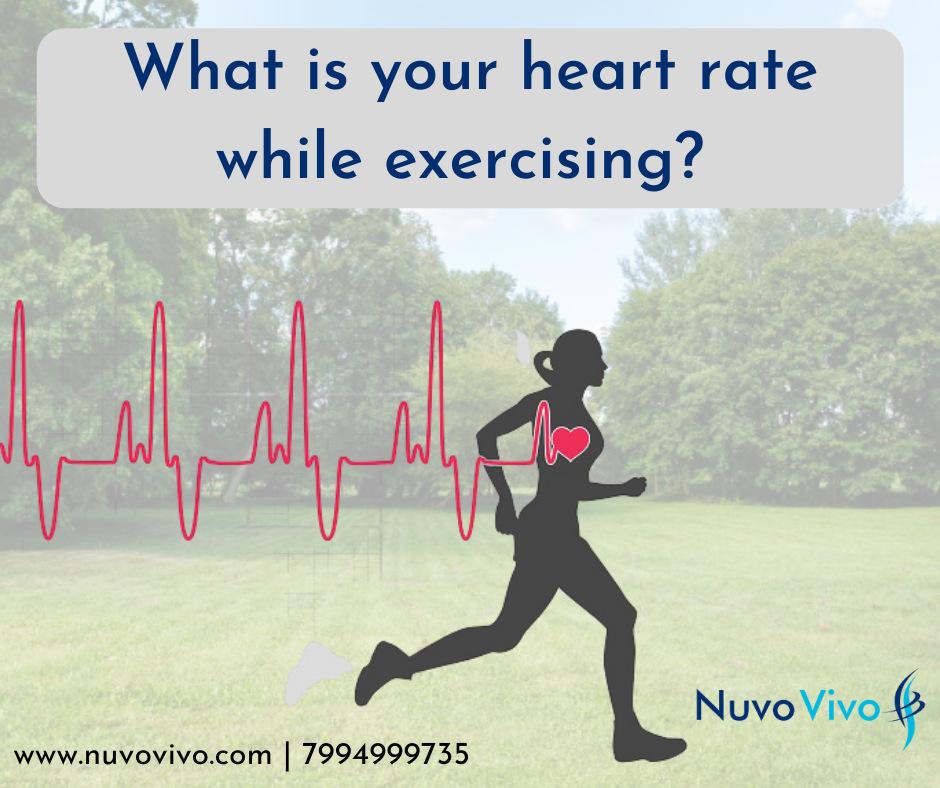What is the normal rate for a healthy person? And, how much can it increase while exercising?
Heart rate or the pulse rate is basically the number of times your heart beats in a minute. The normal resting heart rate for a healthy person is around 60-100 beats per minute.
However, this number can vary by a great deal based on many parameters like –
For example, the heartbeat of a baby is higher than a teenager which is higher than a grown-up adult.
Apart from the Age, weight, medical conditions, stress, anxiety, medication, how physically active you are etc are other factors that impact the heart rate!
The resting heart rate, however, increases as we engage in physical activities and exercises – especially cardiovascular exercises.
As we do exercises, our muscles and other body tissues require more oxygen and other nutrients and the heart would beat faster to meet that need. That said, it is important to not strain your heart too much. That said, it is also interesting to note that, as we exercise and improve the fitness levels, the heart becomes more and more efficient and the resting heart rate falls gradually. A highly trained athlete heart rate can sometimes be as low as 40 to 50 beats per min!
So, what is the maximum rate at which you can strain your heart?
According to the American Heart Association, your maximum heart rate is 220 – your age. And the maximum heart rate that you can safely achieve during exercise is around 85% of the above number.
For example, if you are 35 years of age, then the maximum heart rate is 220 – 35 = 185 bpm, and the safe rate that you can aim for during exercise is 85% of 185, which is roughly 157 bpm
Some people confuse heart rate with blood pressure. Blood pressure is the pressure exerted by the blood on the walls of arteries, whereas the heart rate is the number of times the heart beats in a minute. A high bp does not necessarily mean that the heart rate is high and vice versa!
But then, it is not only the heart rate that matters, even the rhythm at which it beats is also important. The heart is a muscle that also has some sort of electrical pulsing mechanism that allows it to beat at a particular rhythm. This rhythm is very important as it decides the blood flow mechanism to various tissues.
It is often very common to have the sensation of “skipping a heartbeat” or “an extra heartbeat”. These are called Ectopic heartbeats and are not generally a cause of concern, However, if you feel such ectopic beats very regularly and palpitations, do consult your doctor regarding the same.
Also, consult the doctor, if your resting heart rate is consistently above 100 beats a minute (tachycardia) or if you’re not a trained athlete and your resting heart rate is below 60 beats a minute (bradycardia), and especially if you have other signs or symptoms, such as fainting, dizziness or shortness of breath.
While 85% of (220- age) is the heart rate that you should target, do not beat yourself up too much because your fitness gadget showed you a number that is not within this range! Remember – these gadgets are not sophisticated enough to measure the exact rate and may not be accurate. But, if that bothers you too much, just get a routine, regular check done!
And remember – regular exercise is always helpful to improve the efficiency of the heat, Those with any heart conditions should however speak to the doctor before doing any sort of exercise
About NuvoVivo –
NuvoVivo is an online health and fitness company and we help our clients anywhere in the world become healthy through our 3-month diet and exercise programs. We help them lose body fat, pack some muscles and manage lifestyle disorders such as diabetes, cholesterol, thyroid, pcod, fatty liver, uric, hypertension etc!

